Wojciech is about to start his third and final year of BSc (Hons) Biomedical Sciences at the University of Westminster. Last summer he took part in an internship at the Mater Dei Hospital in Malta to increase his employability.
Why did you decide to take up this opportunity abroad?
I am to graduate next summer and wanted to gain some practical and real-life experience in the field – this was a very last call to do so. I found the opportunity for a placement abroad offered by the University of Westminster very appealing, as it combined not only an opportunity to practice my future profession, train in new skills, prepare for the final year project, expand my horizons in terms of work ethics and procedures that must be considered while working in a hospital, but also an opportunity to spend time abroad allowing to take advantage of the destination in terms of leisure and discovering a new culture.
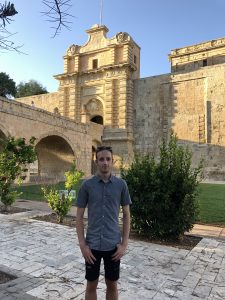
What was your typical day like?
My typical day at the placement started at 8 am. I would travel to the hospital by bus and would go straight to the pathology department. Generally mornings were quiet in the hospital, however, that depended on the specificity of the laboratory. Nevertheless, I usually spent the first few hours receiving and sorting samples or making some preparations for the next day before the rush kicked in.
Later on in the day there was the routine part where the test was being undertaken, meaning loading samples into the machines – if it was an automated lab – or performing necessary tests manually, again, depending on the individual character of a lab.
After a lunch break, there was time for issuing results, making sure they matched the patient’s history and that nothing was missing. In addition to that at any point of the day, there could have been an urgent sample to process or a case of a missing sample to investigate adding a little twist to the routine.
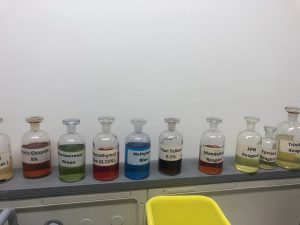
How did you like the programme? What did you find the most enjoyable and most challenging? Tell us about all the differences you discovered. What did you miss the most about the UK?
I enjoyed the programme a lot. The most enjoyable part was to have a hands-on experience, holding actual patients’ samples and the thrill and excitement that goes with it, especially in the more specialised labs, doing things that most likely are not part of my course, but also the knowledge that I was helping each and every patient to get well and also other employees in their tasks. The most challenging part was to get around the machines and other equipment and the pre- and post-analytical procedures, as those parts are, sadly, very poorly covered during the lectures.
The differences I discovered were how important it is to properly and accordingly labelling and to handle samples, rather than performing the test itself, which in many cases is done by a machine anyway. What is more, I noticed how much trust had been put in me and that I was allowed to work practically individually, which does not usually happen in teaching labs.
What I missed about the UK were obviously my friends, breaks from the heat and reliable and frequent public transport.
What graduate attributes have you gained through this experience? Have your transferrable skills improved?
I have gained and further developed several graduate attributes and transferrable skills.
First of all professional attitude and necessary planning and organisation. During those six weeks I got a glimpse of my future professional life, meaning the need of treating my job seriously, as it is not school anymore and coming late or skipping days is unacceptable and it does not matter if it’s an early morning because this is duty and many people rely on me and my work. So I gained that awareness and maintained 100% attendance and punctuality throughout the whole placement.
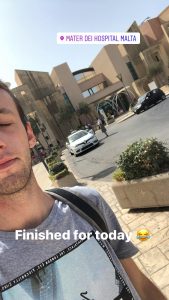
Next important thing is teamwork. I found myself working in a diverse environment with people from other countries and cultures – I was a foreigner myself. In addition to that, there were people of different ages – no working with students only anymore. It was important to keep a professional but also friendly attitude and communicate effectively with everyone regardless of one’s position and background in order to avoid mistakes which effectively might cost the patient greatly. This also involves communication with people from other department and also from outside of the hospital.
One more set of skills that I was working on were the ability to adapt, adjust to a different environment and learn as I go. As I mentioned before, I found myself in a different country that I had never visited before, unaware of how the local culture was like etc. It was therefore important for me to adapt and adjust and be respectful towards others, because sometimes things that are normal to us might be offensive to others. This also applies to a professional environment. I have noticed that hospital labs are run very differently than the teaching labs at the university, meaning that one works individually and there are stages that are mostly either already done for us or skipped which I had to learn how to cope with quickly as essentially those were the things I was responsible for – I had to adapt for very different and a bit unexpected circumstances. Critical thinking, common sense and a bit of creativity, but most importantly communication helped me to overcome that.
Another important thing that I learnt and developed was to take initiative and not to be afraid to ask for guidance and to show interest in what I can do or learn more. As in the professional environment nobody would watch over me all the time and walk me through everything like it is done with children. One needs to step in and ask, request further guidance, show interest and curiosity otherwise one is left behind.
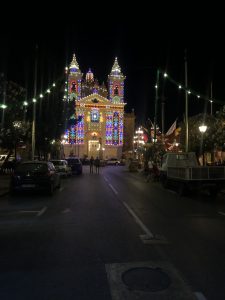
What message would you like to pass on to students who are considering a similar opportunity? Is there anything they should know before going to the Mater Dei Hospital in particular or to Malta in general? Any advice or top tips for students who plan to gain international experience in general?
My message to students would be seize this opportunity or any opportunity that arises because it will help you grow not only as a professional but as a person as well. It is a fantastic, once in a lifetime opportunity, so be brave and be confident as it pays off!
What I would suggest to do before going to Malta is to take your time and choose your accommodation carefully and absolutely make sure it has air conditioning! Additionally use any protection from the heat possible, do not push your limits with the sun – respect it and sacrifice looks for protection.
My tips for an international trip would be don’t leave anything last minute, do your research about the place, learn some language, history, cuisine – it’ll give you extra credits in contacts with the locals. Check the weather so you’re sure you will always be dressed accordingly, get loads of energy, be present everywhere in and out of work and make the most of the trip keeping in mind to make it a fun experience.

And finally any interesting experiences from your trip that you would like to share with us?
An interesting experience to me was a trip to Gozo, which is the second-largest island in the Maltese archipelago. The only way at the moment to get there is by ferry. It was a magical experience as the ferry takes you to a whole new world, as it feels like not only a physical journey to a different island, but also some sort of travel back in time as Gozo is pretty rural and retains its natural make-up as the rapid development that takes in Malta hasn’t reached Gozo yet. One can visit many traditional shops such as two hundred year old bakeries and taste very traditional cuisine. Additionally, because reaching Gozo is a bit challenging there are fewer tourists which allows you to feel more like a local. What is more, on the way to Gozo you pass another island called Comino, which is not inhabited, but the Blue Lagoon located there attracts many people due to the colour of the water which is an intense light blue like taken out of a fairy tale which adds more fantasy to this already quite magical experience.
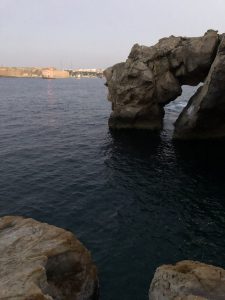
- Karah’s summer internship in Kumasi, Ghana - September 13, 2019
- Wojciech’s summer internship at the Mater Dei Hospital in Malta - September 2, 2019
- Eman’s summer at SWUFE Global Academy in Chengdu - August 23, 2019
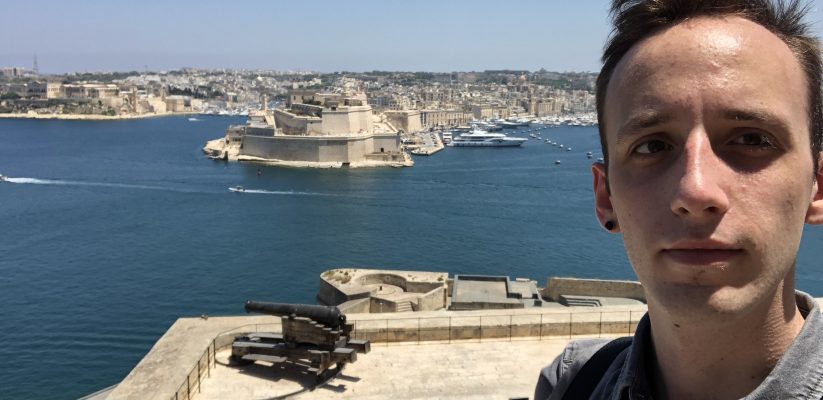
Hello,
really interesting story!
I am a third-year medical student from Poland (but studying in English language) and I am interested in having summer practical training this year at Mater Dei Hospital in Malta. Can you please share with me who should I contact to sign up for it? Is there any internship department responsible for that?
Thank you in advance for your answer
BR
Wiktoria